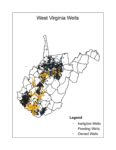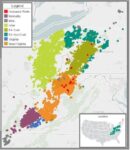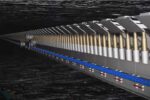This article originally provided by Platts
Leasing costs in three of the US’ largest natural gas shale plays have
risen sharply over the last several months as more companies seek to lock up
acreage, independent Chesapeake Energy said Friday.
In a presentation to investors, the Oklahoma City-based company, which is
the third largest gas producer in the US, said “competitive pressures” from
companies have led in the past few months to a doubling to tripling of
leasehold prices in the Barnett Shale of Texas.
The company added that the higher leasehold prices in the shale have
increased natural gas finding costs by about 25 cents/Mcf-equivalent. Despite
the higher costs, Chesapeake said it is continuing to increase its holdings in
the Barnett and expected to own 250,000 net acres in Johnson, Tarrant and
Dallas counties by year-end 2008 and 280,000 net acres by the end of 2009.
The company also said it has seen over the past six months a doubling of
leasehold costs in Arkansas’ Fayetteville Shale, although it added that lease
costs in the shale are still 50% to 75% below those of Tarrant County in the
Barnett.
Chesapeake added that leasehold costs in the promising Marcellus Shale in
West Virginia, Pennsylvania and New York have risen fourfold over the past few
months to more than $2,000/acre.
The company blamed the jump on competition from Barnett players, saying
that “many of those left behind in the ‘shale sweepstakes’ seem determined not
to miss this play.”
Despite the higher costs, Chesapeake said Marcellus’ five-year lease
terms and royalty rates ranging from 12.5% to 20% “remain attractive,” adding
that natural gas prices in the region are $1 to $1.50/Mcfe higher than in the
Barnett.











